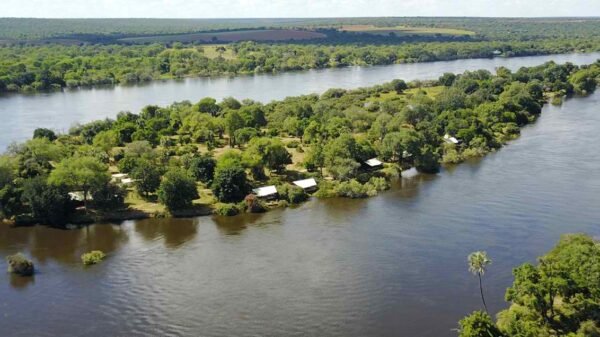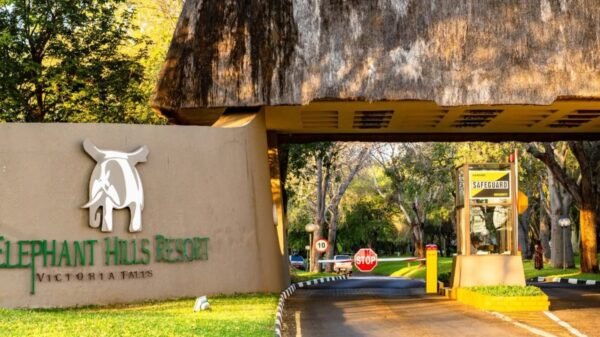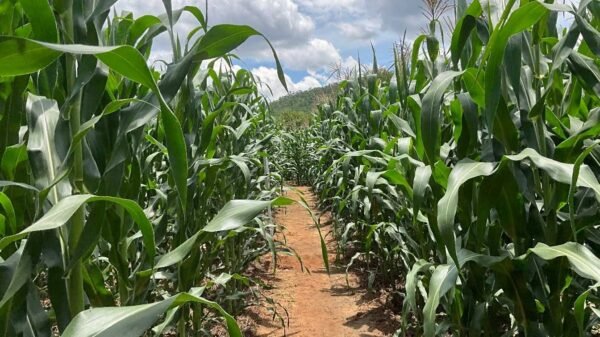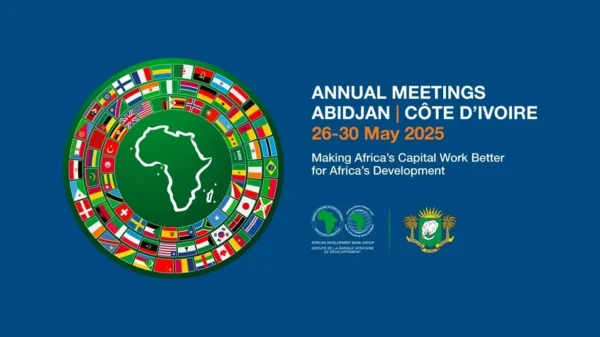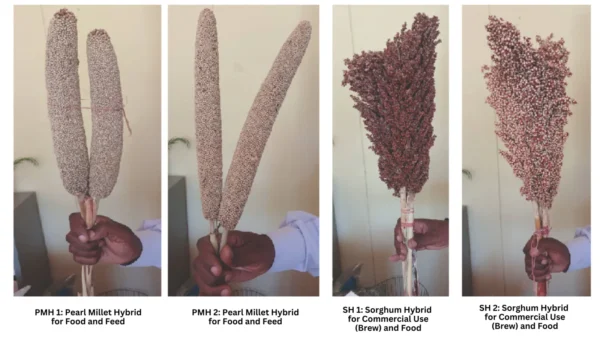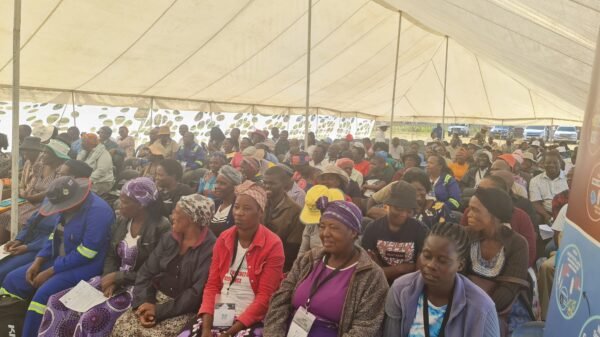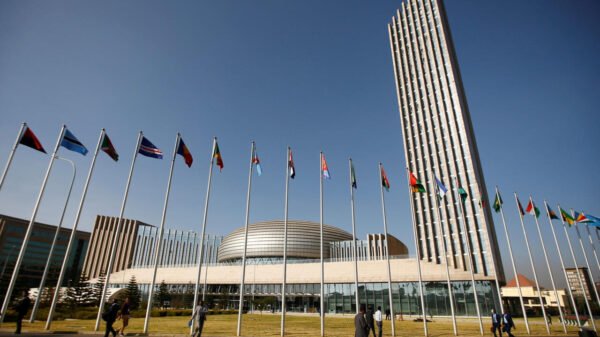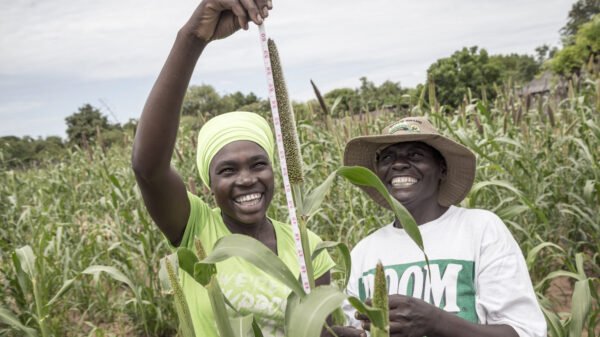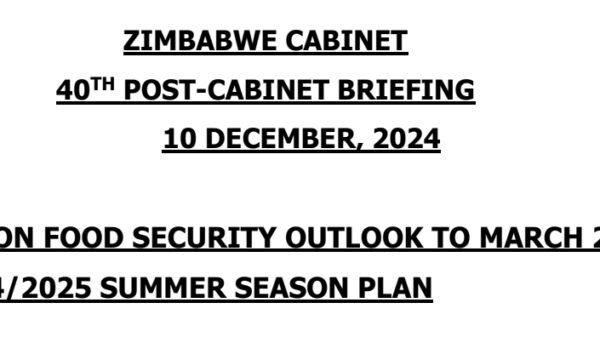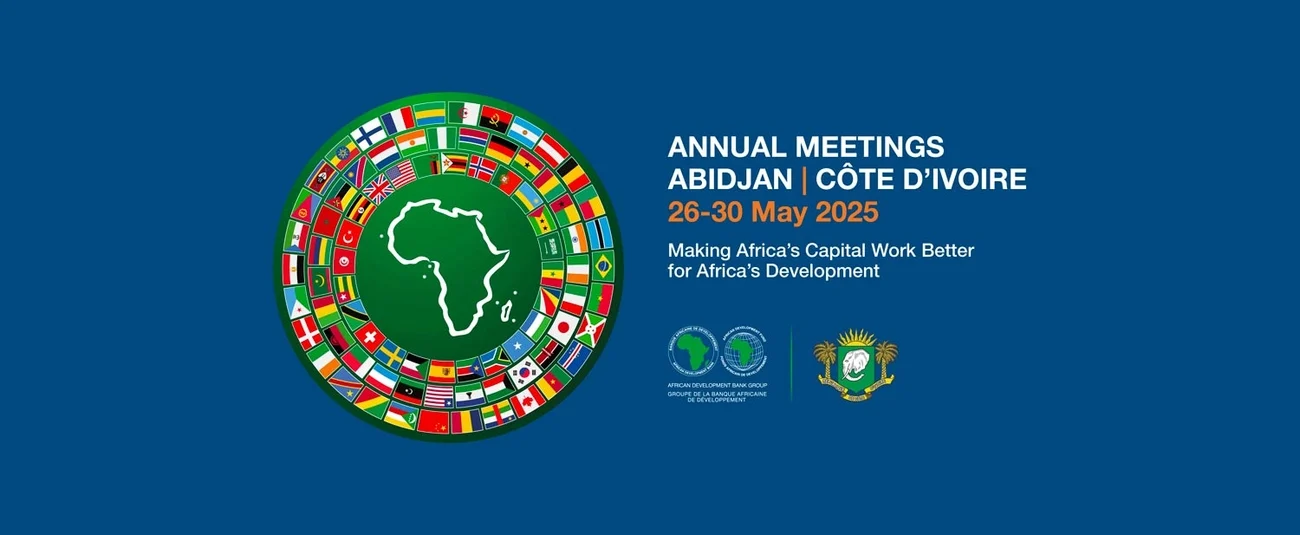……But thorny questions linger
OUTGOING African Development Bank (AfDB) president Akinwumi Adesina says there is reason to believe that Zimbabwe should be able to raise between US$8 billion and US$9 billion through the unlocking of value catalysed by the issuance of new title deeds to indigenous farmers.
Speaking in Ivory Coast on the sidelines of AfDB’s annual meetings, an upbeat Adesina (pictured, left) says the title deeds programme is creating new value.

“I am actually very, very delighted that the titles were actually 99-year leases. Now, they are turning them into full title deeds…So today, because we have title, it means the value of the land is so high and that is why they [Zimbabwe] are going to be able to raise maybe US$8 or US$9 billion as a country.”
Adesina — who has completed the maximum two terms at the helm of the continent’s development bank — is champion of Zimbabwe’s debt resolution dialogue. Alongside former Mozambican president Joaquim Chissano, he is facilitating an ambitious process meant to set Harare on a path to sustainable economic and governance reforms.
The Structured Dialogue Platform was launched in December 2022 to bring together Zimbabwe and its creditors to find ways of addressing the country’s substantial debt and arrears, which have accumulated over decades.
The Zimbabwean government says the issuance of title deeds will unlock economic potential by enabling local farmers to access credit.
Chissano (pictured, right) says the land question has been the genesis and nerve centre of all that has happened in Zimbabwe.
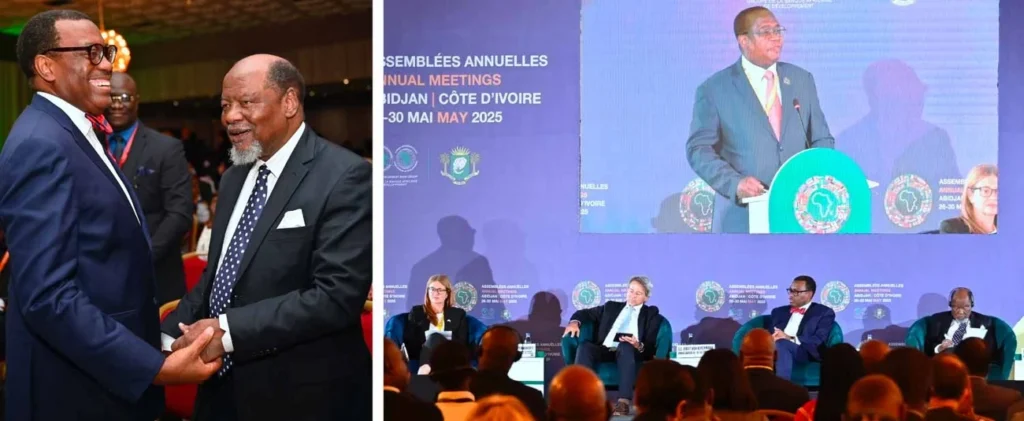
“Politically, this has been the crux of the matter, and was viewed as the most difficult, if not impossible, to address. However, Zimbabwe has proved all of us wrong.”
But thorny questions continue swirling above the title deeds scheme: What guarantee is there that the catastrophic corruption which has destroyed the economy will not seep into the agrarian reform programme, particularly the issuance of title deeds? How will the state’s notoriously weak and ineffectual institutions provide safeguards against corrupt politicians and their corporate cronies who, as always, are driven by self-aggrandisement? Multiple farm ownership — which has been a huge problem for decades — casts an unsettling shadow over Zimbabwe’s agrarian policy. Land reform is a matter of cross-generational importance and cannot be left to the whims and caprices of rent-seeking politicians.
With Parliament failing to exercise oversight over the title deeds programme to ensure equity, inclusivity and democratic accountability, a cloud hangs above the government as the country sleepwalks into yet another controversy.
Not all Zimbabweans are equal
The Presidential Land Tenure Implementation Committee, chaired by Zanu PF oligarch Kudakwashe Tagwirei, added fuel to the fire when it recently published a statement announcing favourable payment terms for certain classes of Zimbabweans seeking title deeds.
Farmers with deep pockets who have the capacity to pay cash for land will enjoy a generous 15% discount on the purchase price. To benefit from the discount, a farmer must make full payment within a 90-day window.
“The firms will be processed within 3 days for farmers paying cash on the purchase price,” said Tagwirei’s committee.
The rest of the farmers — who have no ready cash and are hoping to finance their land purchase via loans or mortgages — have been placed at the bottom of the totem pole.
This special arrangement for rich citizens has raised eyebrows. It creates a dangerous impression that Zimbabwe’s agrarian revolution is designed to benefit — first and foremost — the privileged elite. But how does an agrarian revolution — meant to address historical injustices in land ownership — get contaminated with crass materialism? In terms of Zimbabwe’s founding values, every citizen has a birthright to land — and this cannot be predicated on the size of one’s pocket or the length of one’s curriculum vitae.
The other three special categories of people listed by the committee in their order of importance are: war veterans (15% discount); civil servants who have served 20 or more years (5%); and civil servants who have served at least 10 years (2.5%).
Where does that leave the bulk of the farmers? The committee says it is negotiating with banks to avail mortgage facilities.
“Farmers who need mortgage arrangement are advised that, Government is finalising the modalities with selected banks for this facility. Once modalities are completed, we will inform the nation.”
A banking sector executive told Food For Thought that it will be difficult for financial institutions to participate in the mortgage scheme if banks are not allowed to seize land from farmers who default on loans. A genuine title deed must be bankable, registrable, and transferable. Anything short of that is worthless.
It will be remembered that Tagwirei’s committee got off to a controversial start after asserting that banks will not be allowed to seize land from farmers who default on loans. If that is the case, how will these so-called title deeds be used as collateral?
Most importantly, what guarantee is there that this new “title deeds” scheme is not yet another grand heist whose debts will be inherited by the state and the burden placed squarely on the shoulders of long-suffering taxpayers?
For decades, agriculture in Zimbabwe has been used by political elites and their cronies as a conduit for massive looting. From the Farm Mechanisation programme to Command Agriculture, the common thread has been systemic corruption.
Where’s Parliament?
From a social justice perspective, land reform in Zimbabwe was not only desirable but also necessary. It is both a moral and economic imperative. But the reform must benefit the land-poor and not merely transfer wealth to a privileged black elite.
President Emmerson Mnangagwa’s decision to appoint a Presidential Land Tenure Implementation Committee, instead of utilising the existing Zimbabwe Land Commission, is problematic. The commission is a statutory body mandated with matters pertaining to the acquisition, auditing, administration, allocation, arbitration as well as alienation of agricultural state land.
The Land Commission’s mandate is enunciated in sections 296 and 297 of the constitution of Zimbabwe. That mandate is further fleshed out in the Land Commission Act [Chapter 20:29] which became operational in February 2018.
Had the Land Commission been tasked with the processing of title deeds, such an arrangement would have made it feasible for Parliament to fully scrutinise the programme. As matters stand, the Tagwirei-chaired committee was handpicked by Mnangagwa and is directly answerable to him.
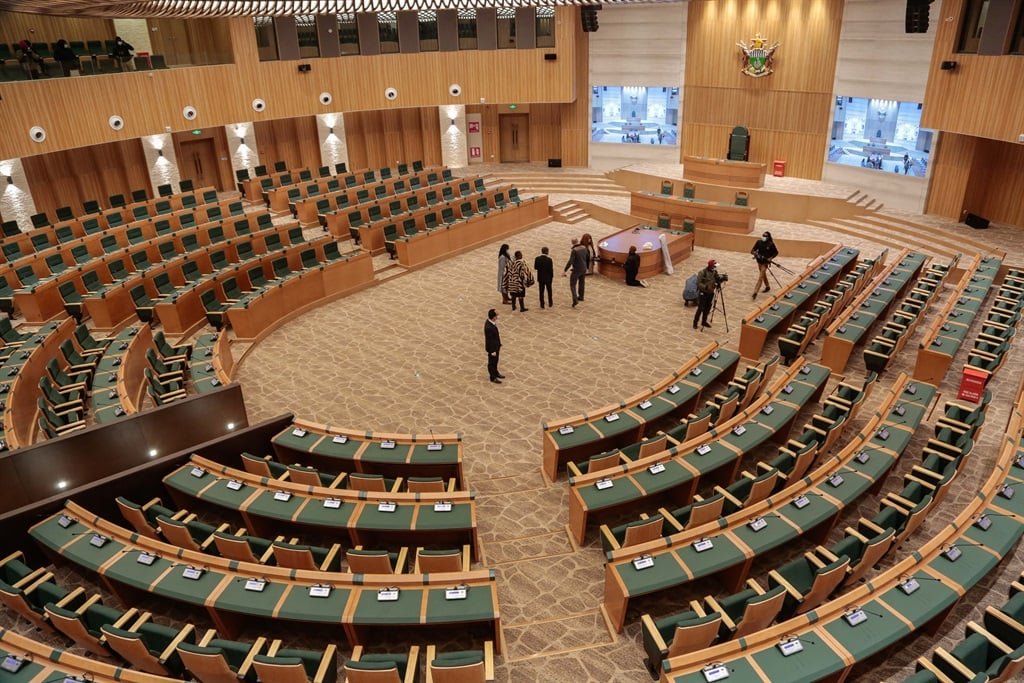
Ivory tower…Zimbabwe’s Parliament is neglecting its constitutional responsibilities by failing to thoroughly scrutinise the title deeds programme.
Although Zimbabwe’s legislature — as currently configured — has been reduced to a mere rubberstamp, the oversight function of parliamentarians would have ensured a semblance of transparency in how the title deed scheme is administered.
All the same, MPs have a constitutional responsibility to demand serious answers from the Lands minister. Matters of agrarian reform are sacrosanct.–Staff Writer.
Please also read:
https://foodforthought.co.zw/cash-is-king-deep-pocketed-elites-enjoy-generous-discount-on-title-deeds-as-agrarian-revolution-turns-absurd/

